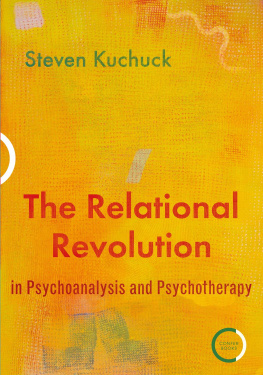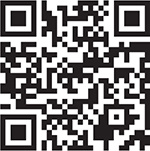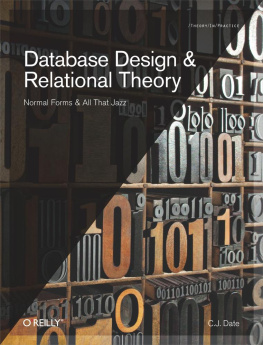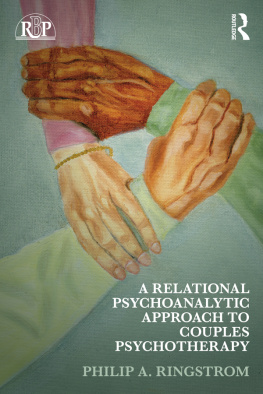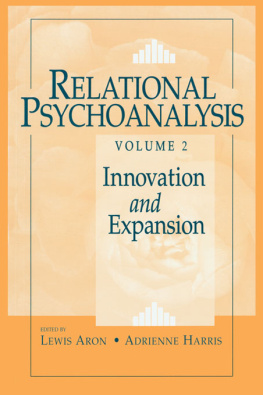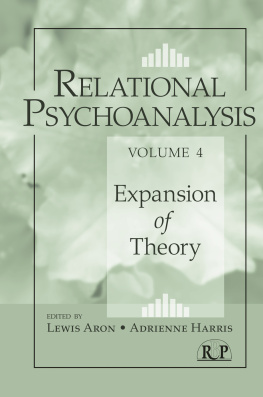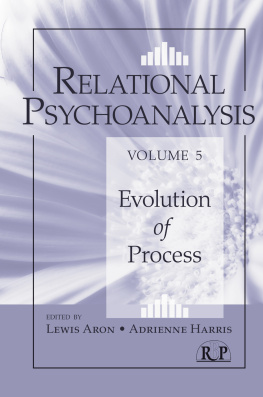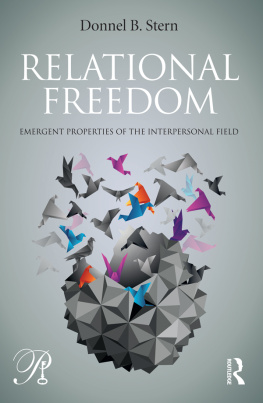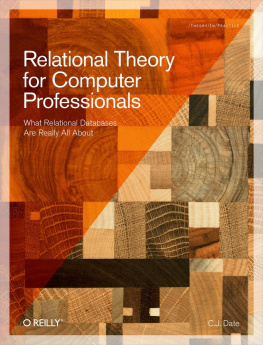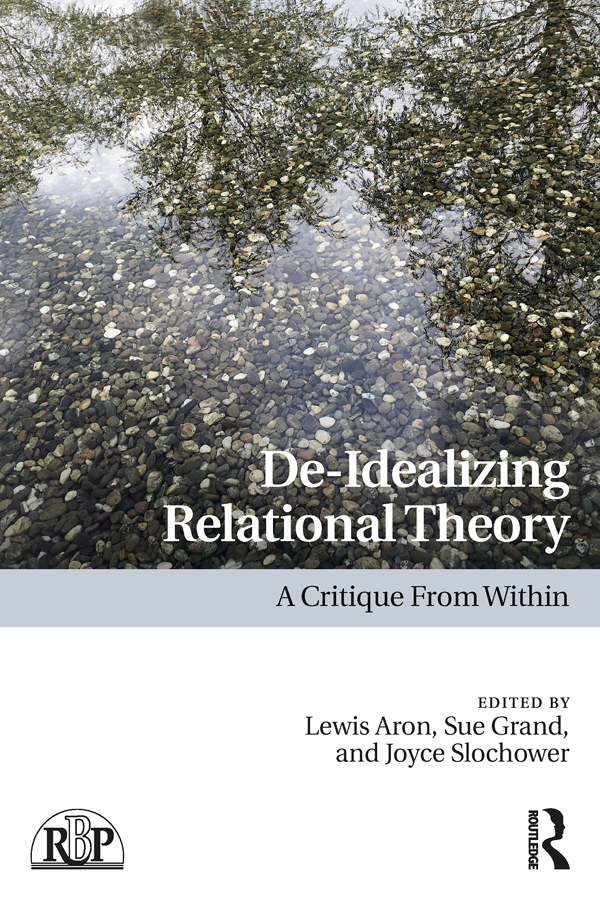Lewis Aron (editor) - De-Idealizing Relational Theory: A Critique From Within
Here you can read online Lewis Aron (editor) - De-Idealizing Relational Theory: A Critique From Within full text of the book (entire story) in english for free. Download pdf and epub, get meaning, cover and reviews about this ebook. year: 2018, publisher: Routledge, genre: Politics. Description of the work, (preface) as well as reviews are available. Best literature library LitArk.com created for fans of good reading and offers a wide selection of genres:
Romance novel
Science fiction
Adventure
Detective
Science
History
Home and family
Prose
Art
Politics
Computer
Non-fiction
Religion
Business
Children
Humor
Choose a favorite category and find really read worthwhile books. Enjoy immersion in the world of imagination, feel the emotions of the characters or learn something new for yourself, make an fascinating discovery.

- Book:De-Idealizing Relational Theory: A Critique From Within
- Author:
- Publisher:Routledge
- Genre:
- Year:2018
- Rating:3 / 5
- Favourites:Add to favourites
- Your mark:
De-Idealizing Relational Theory: A Critique From Within: summary, description and annotation
We offer to read an annotation, description, summary or preface (depends on what the author of the book "De-Idealizing Relational Theory: A Critique From Within" wrote himself). If you haven't found the necessary information about the book — write in the comments, we will try to find it.
Self-examination and self-critique: for psychoanalytic patients, this is the conduit to growth. Yet within the field, psychoanalysts havent sufficiently utilized their own methodology or subjected their own preferred approaches to systematic and critical self-examination. Across theoretical divides, psychoanalytic writers and clinicians have too often responded to criticism with defensiveness rather than reflectivity.
De-Idealizing Relational Theory attempts to rectify this for the relational field. This book is a first in the history of psychoanalysis; it takes internal dissension and difference seriously rather than defensively. Rather than saying that the others reading of relational theory is wrong, distorted, or a misrepresentation, this book is interested in querying how theory lends itself to such characterizations. How have psychoanalysts participated in conveying this portrayal to their critics? Might this dissension illuminate blind-spot(s) and highlight new areas of growth?
Its a challenge to engage in psychoanalytic self-critique. To do so requires that we move beyond our own assumptions and deeply held beliefs about what moves the treatment process and how we can best function within it. To step aside from ourselves, to question the assumed, to take the critiques of others seriously, demands more than an absence of defensiveness. It requires that we step into the shoes of the psychoanalytic Other and suspend not only our theories, but our emotional investment in them. There are a range of ways in which our authors took up that challenge. Some revisted the assumptions that underlay early relational thinking and expanded their sources (Greenberg & Aron). Some took up specific aspects of relational technique and unpacked their roots and evolution (Mark, Cooper). Some offered an expanded view of what constitutes relational theory and technique (Seligman, Corbett, Grossmark). Some more directly critiqued aspects of relational theory and technique (Berman, Stern). And some took on a broader critique of relational theory or technique (Layton, Slochower).
Unsurprisingly, no single essay examined the totality of relational thinking, its theoretical and clinical implications. This task would be herculean both practically and psychologically. Were all invested in aspects of what we think and what we do; at best, we examine some, but never all of our assumptions and ideas. We recognize, retrospectively, how very challenging a task this was; it asked writers to engage in what we might think of as a self-analysis of the countertransference. Taken together these essays represent a significant effort at self-critique and we are enormously proud of it.
Each chapter critically assesses and examines aspects of relational theory and technique, considers its current state and its relations to other psychoanalytic approaches. De-Idealizing Relational Theory will appeal to all relational psychoanalysts and psychoanalytic psychotherapists.
Lewis Aron (editor): author's other books
Who wrote De-Idealizing Relational Theory: A Critique From Within? Find out the surname, the name of the author of the book and a list of all author's works by series.

